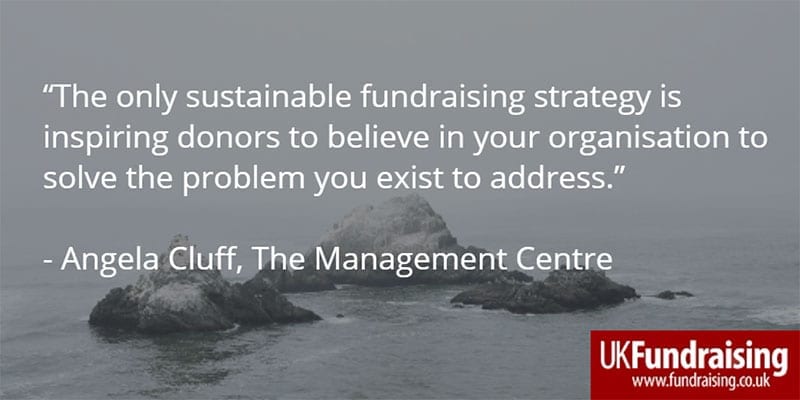Mail on Sunday’s headlines – are fundraisers getting it wrong?
There was me thinking it was a day off from fundraising. It is a sunny Sunday after all. But I did have to make a trip to Waitrose – and fundraising was headline news on the Mail on Sunday, almost eclipsing pictures of George and Charlotte. And not in a good way.

The Mail on Sunday claims Oxfam targets donors aged 98. Oxfam said the headline was factually incorrect.
Headlines like today’s are profoundly damaging, not just for the charities named (who may or may not have done anything wrong) but for the sector as a whole. I for one am convinced more than ever that we need to act, act collectively and decisively, and act fast.
I don’t believe any fundraiser goes into fundraising in any way without a desire to make the world a better place. No fundraising manager makes decisions without believing that they are working in the best interests of the charity they serve. And no agency or supplier doesn’t understand that they too hold carefully built reputations in their hands.
So where is it all going so wrong?
For me, at the heart of any fundraiser’s core competence is an ability to inspire donors about the difference they can make and to listen and then respond to their needs and interests. It seems we’re doing neither if ‘the poor, sick and the elderly are fair game’.
And it doesn’t sit with the fundraising strategies I spend most of my time in my day to day job on – key elements typically include statements that fundraising will:
• Live the values of the organisation
• Put beneficiaries at the heart of fundraising
• Focus on long term relationships to build life time value
• Deliver an outstanding customer experience
The list goes on.
Boards and CEOs need to get involved
The media’s interest in fundraising is a massive wake up call to fundraisers. But it isn’t only fundraisers who need to respond. CEOs, senior teams and Boards need to actively get involved – and understand that fundraising is a long term game. There are few quick fixes. Even fewer examples of doubling income overnight – despite what you might believe if you read some CVs.
The only sustainable fundraising strategy is inspiring donors to believe in your organisation to solve the problem you exist to address. You need to do everything that aligns with that – and resist doing things that get in the way.
Advertisement
Principled fundraising organisation
This year I have had the privilege on working with MSF on their global fundraising strategy – perhaps the most principled fundraising organisation I’ve come across. The entire fundraising model is predicated on the core premise that fundraising should be ‘needs driven’ – to raise as much as necessary (not as possible) to fulfil the medical and humanitarian needs of patients and the organisation’s capacity to respond. That’s a great start point.
And there is a lot we can all learn from the approach. MSF could – I’m sure – have raised more money on the back of the Ebola crisis. But it didn’t. As ever it stuck to the needs driven principle. I’m convinced that builds donor commitment and trust.
Fundraising is a long term game. To succeed we need to stop chasing short term cash at any cost. And fundraisers need to say no to unachievable short-term goals that demand donors are treated as cashpoints.
Put yourself in the shoes of the donor
There is a really simple litmus test. Put yourself in the shoes of the donor – how might it feel to be on the receiving end of what you are saying, writing, suggesting? If you have the slightest doubt, I urge you to re-consider. If it doesn’t sit well with you personally, how on earth can it sit well with someone who is poorer, sicker or more vulnerable than you might be?
Oh and if you are not a donor, I urge you to become one. I genuinely believe that being a donor to whatever organisation you want to support will keep your fundraising grounded in an ethical framework you can defend.
Angela Cluff is a director of the management centre, a leading management consultancy working exclusively for ethical organisations internationally. She was deputy director of fundraising at NSPCC during the fill stop appeal and played a leading role in the campaign. She is currently advising on global strategies for MSF and WWF. She is also a trustee of Care International in the UK.




